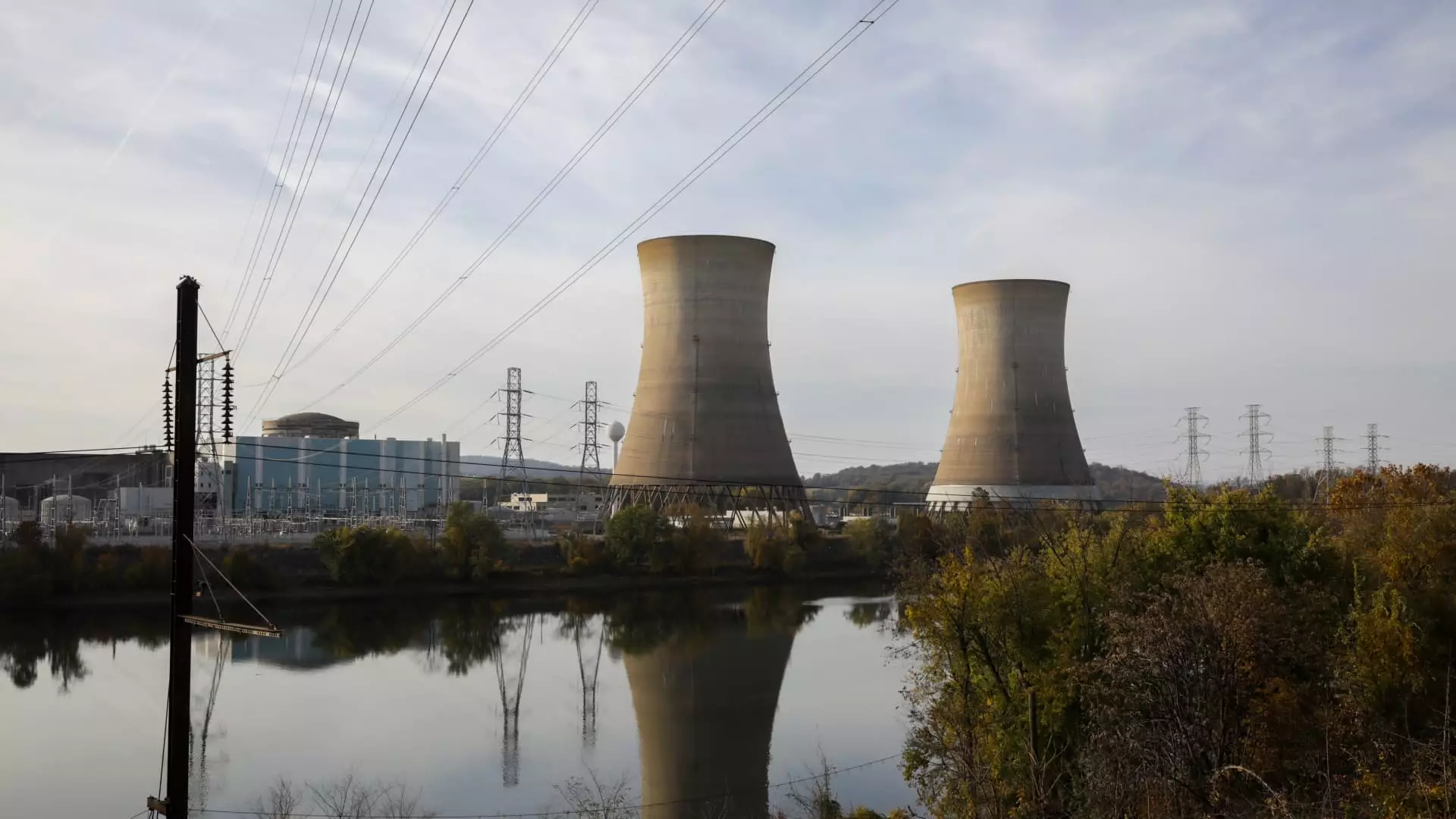The energy sector, particularly power companies, has found itself at a crossroads owing to the burgeoning demands and implications brought about by the rapid rise of artificial intelligence (AI). Recent developments have led investors to express significant skepticism regarding the energy requirements tied to increasing AI applications, especially with the groundbreaking unveiling of DeepSeek, an open-source AI laboratory from China. This initiative has ignited a wave of uncertainty, prompting a dramatic sell-off in stocks of major players like Constellation Energy, Vistra, GE Vernova, and Talen Energy.
On a disheartening Monday for these companies, Constellation Energy and Vistra witnessed stock declines of over 16%, while GE Vernova and Talen Energy faced losses close to 18% and 15%, respectively. Throughout the past year, these power providers were positioned as frontrunners in the S&P 500, buoyed by expectations that AI-driven data centers would drastically escalate energy consumption. The arrival of DeepSeek on the scene, however, ushered in doubts about the sustainability and the extent of energy demands that these technologies would necessitate, triggering investor unease.
The core of the uncertainty appears to stem from DeepSeek’s rapid advancements in AI capabilities. The AI model launched just in time for Christmas, described by Scale AI’s CEO Alexandr Wang as “earth-shattering,” indicates a significant stride in the AI race. DeepSeek’s swift ascent in functionality has led some industry experts to assert that it is rivaling American technologies, such as OpenAI’s offerings, heightening competitive tensions. Wang stated that DeepSeek’s performance is on par with, if not superior to, that of leading American firms, raising pivotal questions regarding the future of U.S. leadership in AI.
One of the most alarming realizations within the energy sector is the increasing acknowledgment from tech giants that they must secure vast amounts of reliable energy to power their expanding data centers. In response to this undeniable truth, power companies are looking toward nuclear energy as a dependable, carbon-neutral solution. Constellation Energy has already entered into a power supply agreement with Microsoft to revitalize the Three Mile Island nuclear facility in Pennsylvania, thereby reinforcing its position within this transforming landscape. Furthermore, Talen Energy is supplying power for an Amazon data center from a neighboring nuclear plant, illustrating a strategic pivot towards sustainable energy solutions.
Despite Vistra not securing an explicit data center partnership yet, there remains optimism among investors regarding its nuclear and natural gas assets. The significance of these resources cannot be overstated, as they represent a critical part of the energy puzzle required to support the expanding AI infrastructure. Meanwhile, GE Vernova has garnered substantial investor confidence this year, with perceptions that its gas and electric grid operations are well-positioned to absorb the impending AI-driven demand.
However, the situation is not as uncomplicated as merely ramping up nuclear energy output. Bank of America analysts highlight a more systemic challenge threatening to undermine growth: under-investment in electrical grids across the U.S. and Europe. They posit that these grids represent a critical bottleneck, hampering efforts to meet the necessary load growth demands fueled by the AI surge. Without substantial infrastructural investment, the energy sector may find itself unable to fulfill the anticipated requirements, ultimately impacting the tech industry’s expansion.
While the AI revolution presents transformative opportunities for energy companies and the tech sector alike, it simultaneously creates a complex web of challenges. These firms must navigate their energy strategies amidst both heightened competition and critical infrastructure hurdles. The dual-faceted narrative of opportunity intertwined with risk will shape how power companies evolve in an increasingly AI-centric world, prompting a reconsideration of their sustainability initiatives and energy portfolios. As the landscape continues to shift, the ability of these companies to adapt quickly and efficiently may very well determine their fortunes in the coming years.

